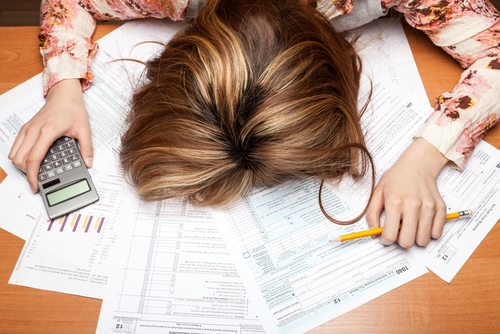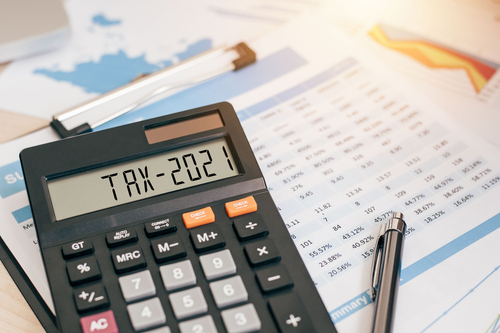This is a question that many people ask when they are considering bankruptcy. The answer, however, is not always simple. There are a number of factors that will need to be considered in order to determine how bankruptcy will affect your taxes.

One of the first things to consider is whether or not you will be able to deduct your bankruptcy filing fees on your taxes. While these fees can be expensive, they are typically tax deductible. This means that you will not have to pay taxes on the money that you spend on bankruptcy filing fees.
Another thing to consider is whether or not you will be able to deduct any debts that are discharged in bankruptcy. In most cases, debts that are discharged in bankruptcy are considered to be taxable income. This means that you will need to pay taxes on any debts that are discharged in bankruptcy. However, there are a few exceptions to this rule.
Finally, you will need to consider how bankruptcy will affect your credit. While bankruptcy can stay on your credit report for up to ten years, it will not necessarily have a negative impact on your credit score. In fact, in some cases, bankruptcy can actually help to improve your credit score.
Is it Difficult to File for Bankruptcy?
While bankruptcy can be a difficult decision to make, it is important to remember that it is not impossible to file for bankruptcy. In fact, many people who file for bankruptcy are able to get their financial lives back on track and rebuild their credit scores. If you are considering bankruptcy, there are a number of resources available to help you through the process.
Do You Need a Lawyer to File for Bankruptcy?
You are not required to hire a lawyer to file for bankruptcy. However, it is often a good idea to consult with a bankruptcy lawyer before making the decision to file for bankruptcy. A bankruptcy lawyer can help you understand the bankruptcy process and ensure that you are taking all of the necessary steps to protect your rights.
What Are the Eligibility Requirements for Bankruptcy?
There are a few different eligibility requirements that you will need to meet in order to file for bankruptcy. First, you will need to prove that you are unable to pay your debts. This can be done by providing financial documentation to the bankruptcy court.

You will also need to attend mandatory credit counseling. This counseling is designed to help you understand your bankruptcy options and make a plan for how you will repay your debts.
Finally, you will need to take a bankruptcy means test. This test is used to determine whether or not you are eligible to file for bankruptcy. The means test looks at your income and expenses to see if you are able to repay your debts.
What Are the Different Types of Bankruptcy?
There are two different types of bankruptcy that you can file for: Chapter 7 bankruptcy and Chapter 13 bankruptcy.
Chapter 7 bankruptcy is also known as liquidation bankruptcy. This type of bankruptcy allows you to discharge your debts and have them wiped away completely. In order to qualify for Chapter 7 bankruptcy, you will need to pass the bankruptcy means test.
Chapter 13 bankruptcy is also known as a reorganization bankruptcy. This type of bankruptcy allows you to create a repayment plan to repay your debts over a period of time. In order to qualify for Chapter 13 bankruptcy, you will need to prove that you have a regular source of income.
Can Bankruptcy Stop Foreclosure?
If you are facing foreclosure, bankruptcy can provide some relief. When you file for bankruptcy, an automatic stay is put in place. This stay prevents creditors from taking any collection actions against you, including foreclosing on your home.
However, the automatic stay is only temporary. In order to keep your home, you will need to continue making your mortgage payments. If you are unable to make your mortgage payments, you may be able to negotiate a loan modification with your lender.
What is the Bankruptcy Process?
The bankruptcy process can be complicated and time-consuming. The first step in the bankruptcy process is to file a bankruptcy petition. This petition will list all of your debts and assets.
You will then need to attend a meeting of creditors. This meeting is where your creditors will have the opportunity to object to your bankruptcy. If there are no objections, your bankruptcy case will be confirmed.
Once your bankruptcy case is confirmed, you will need to complete a bankruptcy plan. This plan will outline how you will repay your debts. Once you have completed your bankruptcy plan, your debts will be discharged, and you will be on your way to financial recovery.
Can Bankruptcy Help me get out of Debt?
Bankruptcy can help you get out of debt by wiping away your debts and giving you a fresh start. However, bankruptcy should only be used as a last resort. If you are able to repay your debts through other means, such as debt consolidation or negotiation, you should do so instead of filing for bankruptcy.
Filing for bankruptcy can have a major impact on your credit score and your ability to obtain new credit in the future. Therefore, you should only consider bankruptcy if you have no other options. If you are considering bankruptcy, it is important that you speak with an experienced bankruptcy attorney. An attorney can help you understand your bankruptcy options and guide you through the bankruptcy process.
Is it Hard to get your Credit up After Filing for Bankruptcy?
Bankruptcy will have a major impact on your credit score. It will stay on your credit report for up to 10 years. During this time, it will be difficult to obtain new credit. However, if you are able to make all of your payments on time and rebuild your credit, you may be able to improve your credit score over time.

Contact S&B Legal Today!
If you are considering bankruptcy, contact S&B Legal today. Our experienced bankruptcy attorneys can help you understand your bankruptcy options and guide you through the bankruptcy process. Contact us today for a free consultation.


